Definitive Comparison of Gas vs Electric Water Heaters
When deciding between a gas or electric water heater, it's important to understand the differences. This article will explore the advantages and disadvantages of each option, including energy efficiency and upfront costs. By considering these factors, homeowners can make informed decisions that meet their needs.

How do electric water heaters work?
An electric water heater works by using heating elements that are placed inside a tank filled with water. These elements are connected to your home's electrical system and are activated to heat the water. A thermostat on the unit keeps track of the water temperature and turns off the heating elements when it reaches the desired level. This way, the water stays hot and can be easily used whenever you need it.

Benefits of electric water heaters
Electric water heaters provide numerous advantages compared to conventional gas-powered heaters.
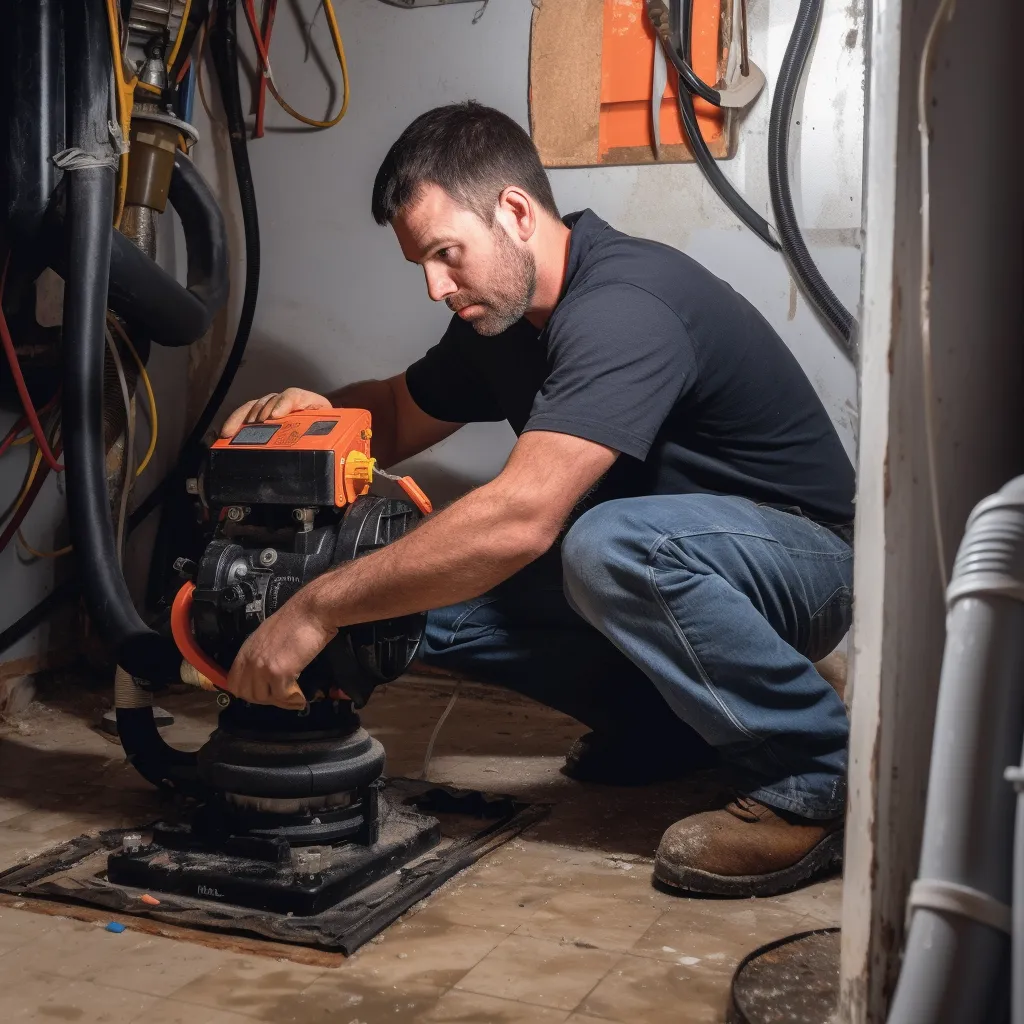
Electric water heaters are a great choice for households as they eliminate the need for gas lines. This not only reduces the risk of gas leaks, but also minimizes the chances of carbon monoxide poisoning. Therefore, electric water heaters are a safer option for your home.
Electric water heaters can be conveniently installed in different areas of your home. Unlike other types of water heaters, they don't need any special venting for exhaust gases. This flexibility makes it easier to find the perfect spot for installation.
Electric water heaters are highly efficient, converting nearly all the electricity they use into heat. As a result, they can help save on energy costs in the long run.
Electric water heaters typically have a lower initial price than their gas-powered counterparts. Additionally, they are generally more cost-effective to install and maintain.
Electric water heaters are a great choice if you want to reduce your carbon footprint and make your home more eco-friendly.
Unlike other types of water heaters, electric ones do not produce any greenhouse gas emissions during their operation.
Electric water heaters are known for their durability and longevity, making them a top choice for homeowners. These heaters have a longer lifespan compared to gas-powered ones, ensuring a constant supply of hot water for an extended period of time.
Disadvantages of electric water heaters
While electric water heaters come with numerous benefits, it's essential to also take into account their potential drawbacks.
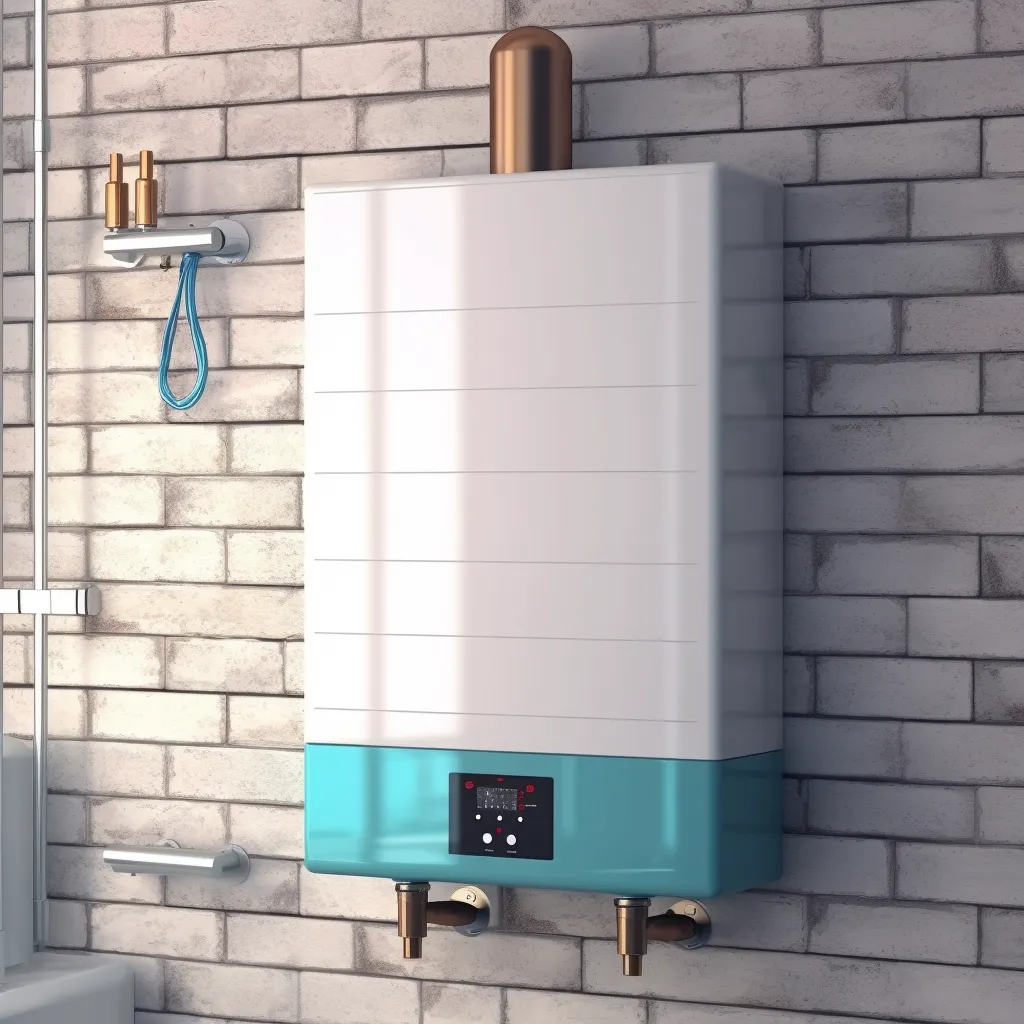
Electric water heaters often heat water at a slower pace than gas models. As a result, it might take a bit longer for the water to warm up to your desired temperature, especially when multiple people are using hot water simultaneously.
Electric water heaters prioritize energy efficiency, yet it's essential to be mindful of potential higher energy bills due to electricity rates. It's crucial to consider the ongoing expenses of electricity to evaluate the overall cost-effectiveness.
Electric water heaters typically have a shorter lifespan than their gas-powered counterparts. As a result, you might find yourself needing to replace the unit earlier, which can increase your long-term expenses.
Electric water heaters are dependent on a steady flow of electricity to operate effectively. In situations where there is a power outage, it is possible that you may experience a lack of hot water until the electricity is reinstated.
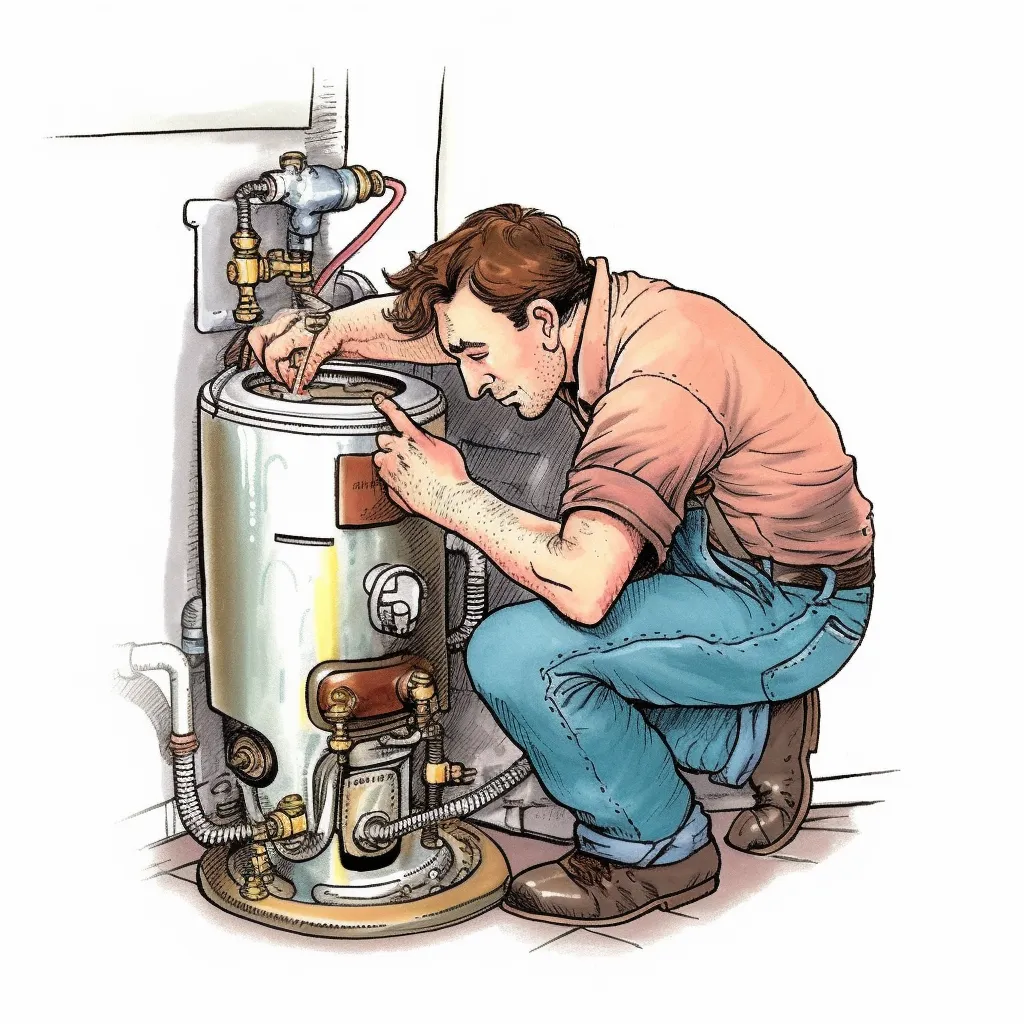
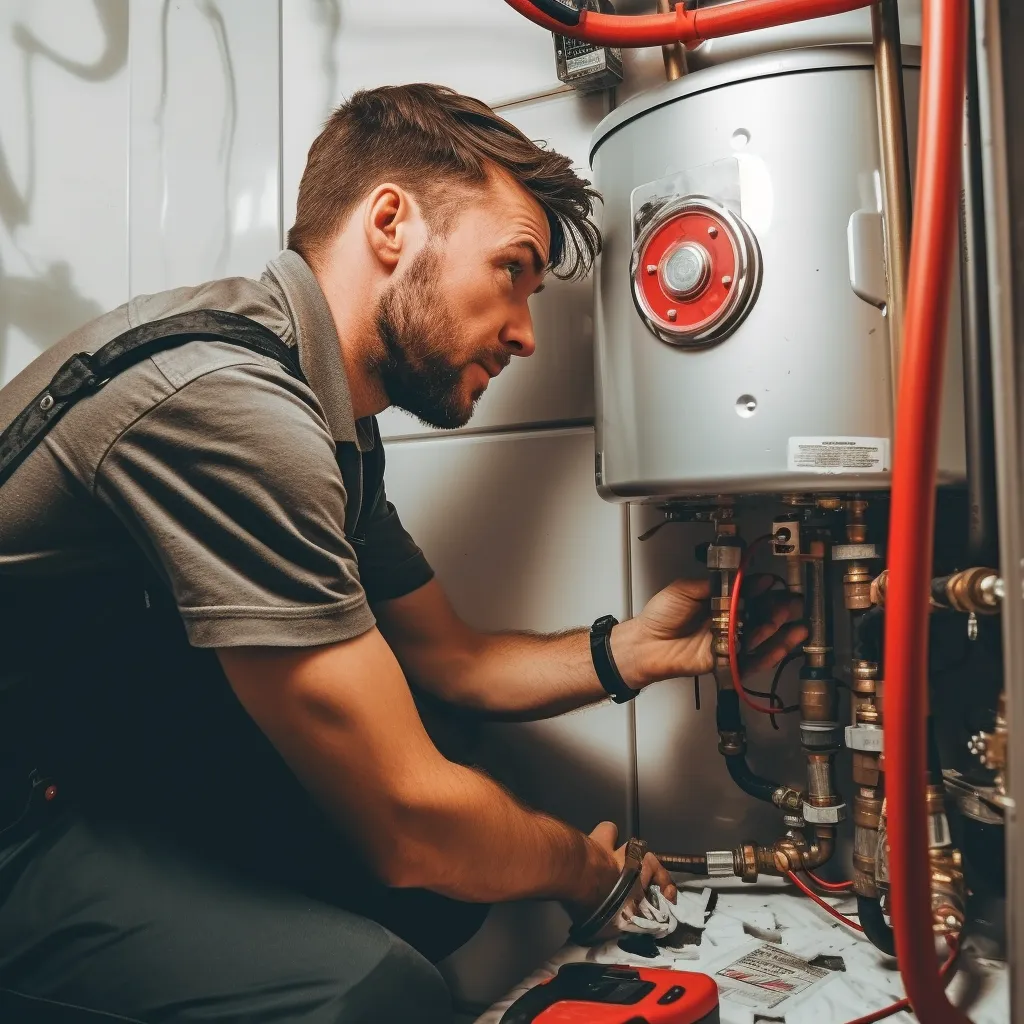
How do gas water heaters work?
Gas water heaters operate by lighting a gas burner situated at the bottom of a sizable tank. The burner heats up the water stored in the tank, enabling it to be used through a faucet whenever required. When hot water is utilized, new cold water enters the tank to maintain a steady supply. This constant process of heating and refilling guarantees a reliable stream of hot water for all kinds of household uses.
Pros of gas water heaters
Gas water heaters are a preferred option among numerous homeowners.
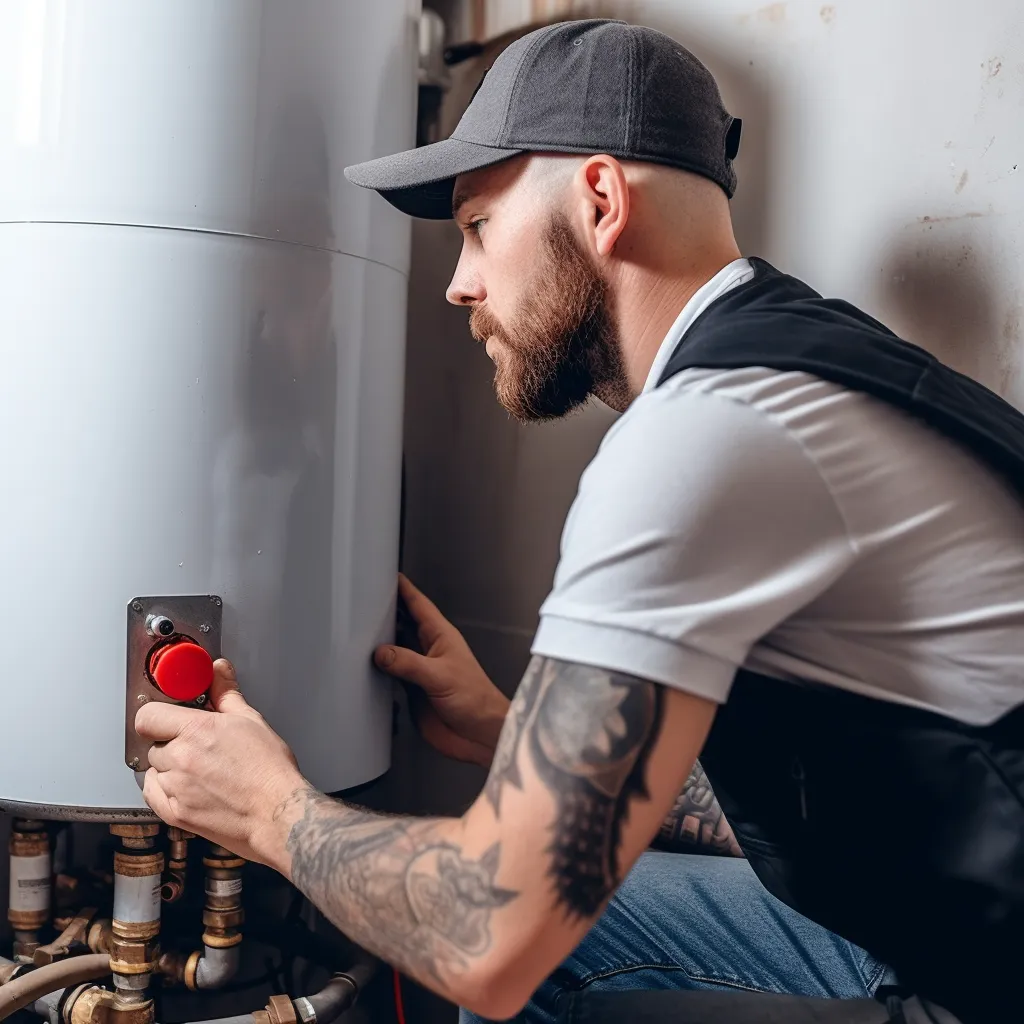
One of the main advantages of gas water heaters is that they can lead to lower utility bills compared to electric units. This is because gas is generally a more affordable fuel source, which can result in significant cost savings over time.
Gas water heaters are designed to heat water at a faster rate compared to electric models. As a result, when you turn on the tap, you can enjoy hot water more quickly. This is especially advantageous for households that need instant access to hot water.
Gas water heaters typically have a longer lifespan than their electric counterparts. This means that you won't have to replace them as often, which can help you save money on replacement expenses.
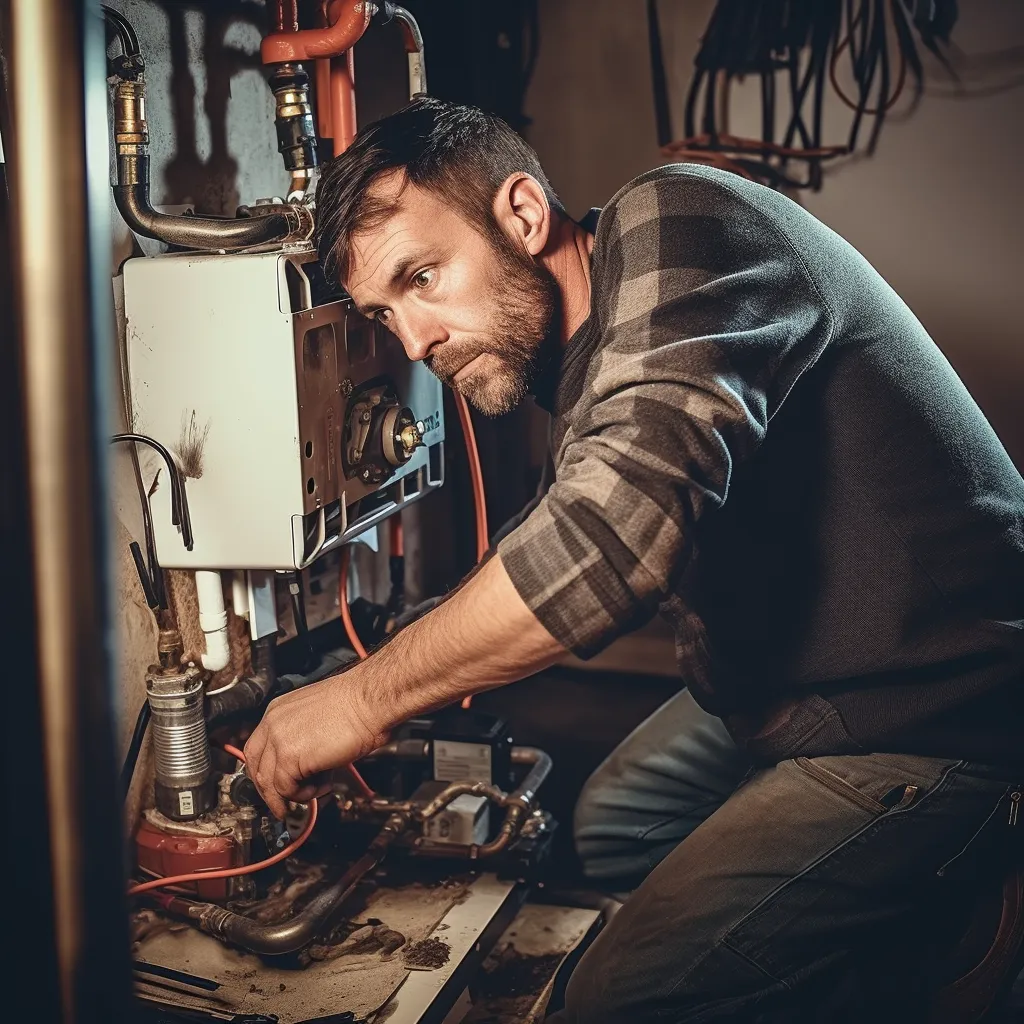
Cons of gas water heaters
While gas water heaters offer numerous benefits, it is important to acknowledge some potential drawbacks as well:
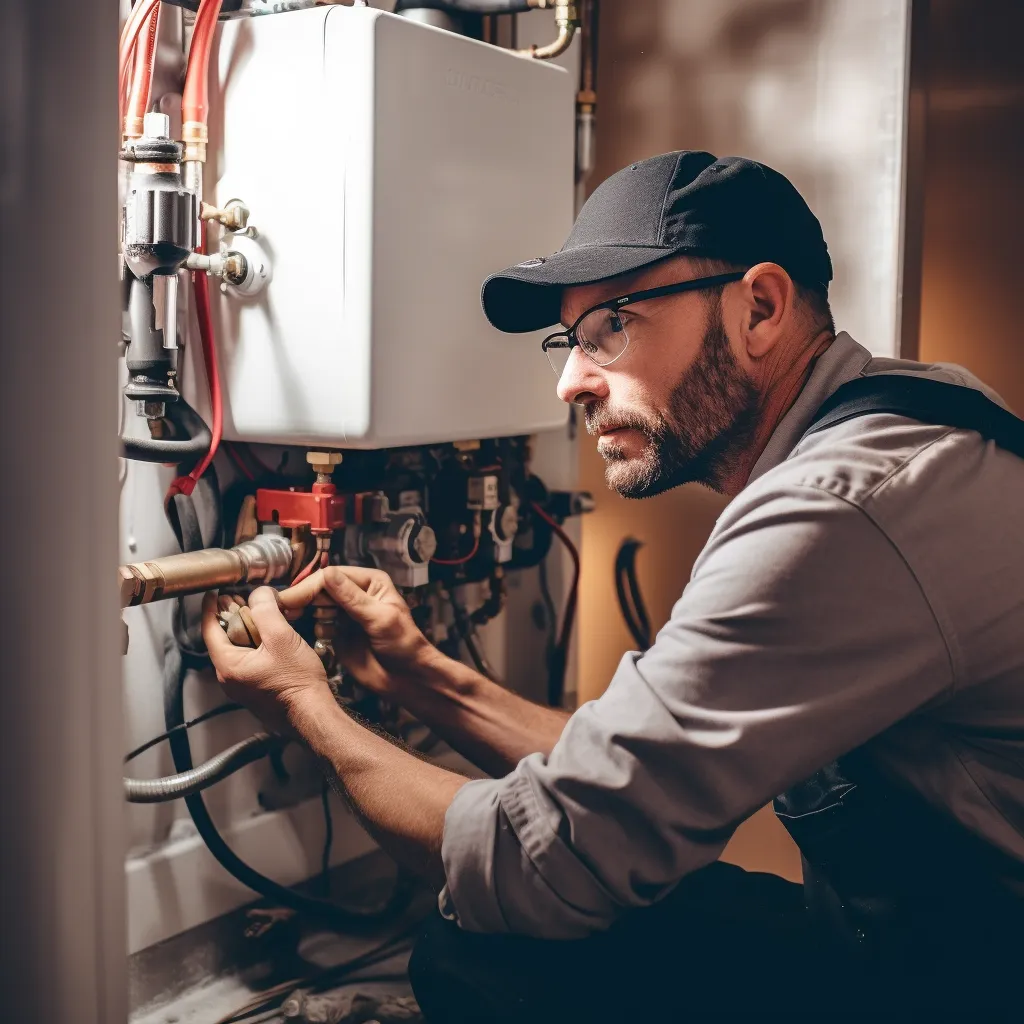
Gas water heaters can have a negative impact on air quality due to the burning of natural gas, a fossil fuel. This burning process emits harmful pollutants into the air, increasing environmental issues.
Gas water heaters must be installed and used correctly to avoid dangerous situations like explosions. It is essential to adhere to safety guidelines and hire a professional to handle the installation process.
Gas water heaters typically demand more upkeep in comparison to their electric counterparts. This involves routine inspections, cleaning, and potential repairs. These extra maintenance needs can result in elevated ongoing expenses.
When it comes to water heater installation, gas units require more time than electric ones. This is because gas heaters involve additional tasks such as setting up gas lines, venting systems, and making sure all connections are secure.

Are electric water heaters energy-efficient?
Electric water heaters vary in efficiency due to several factors, such as unit size, insulation quality, and operating temperature. Gas-powered heaters typically have higher efficiency ratings, but electric models have been steadily improving theirs.
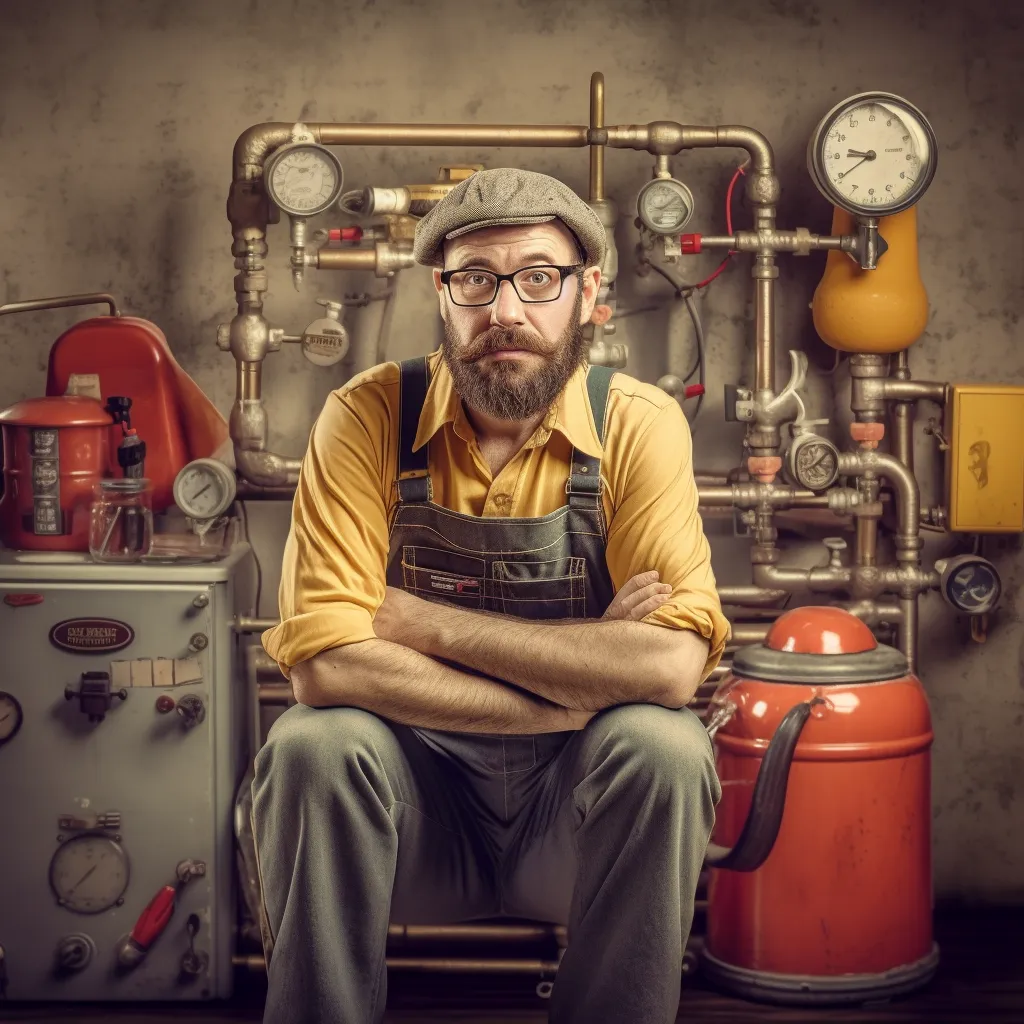
Are gas water heaters energy-efficient?
Gas water heaters are a cost-effective and energy-efficient choice for heating water. They work by burning natural gas to heat the water, which uses less energy than electric models. The efficiency of a gas water heater depends on factors like its size, model, and maintenance.
What does it cost to buy and install electric water heaters?
Electric water heaters come in various sizes and have different features, which affect their prices. A 50-gallon electric water heater, for example, usually costs between $300 and $800. In addition to the cost of the water heater itself, the installation process typically adds an extra expense of around $300 to $500. This installation cost can vary depending on factors such as the specific work needed and any necessary permits.

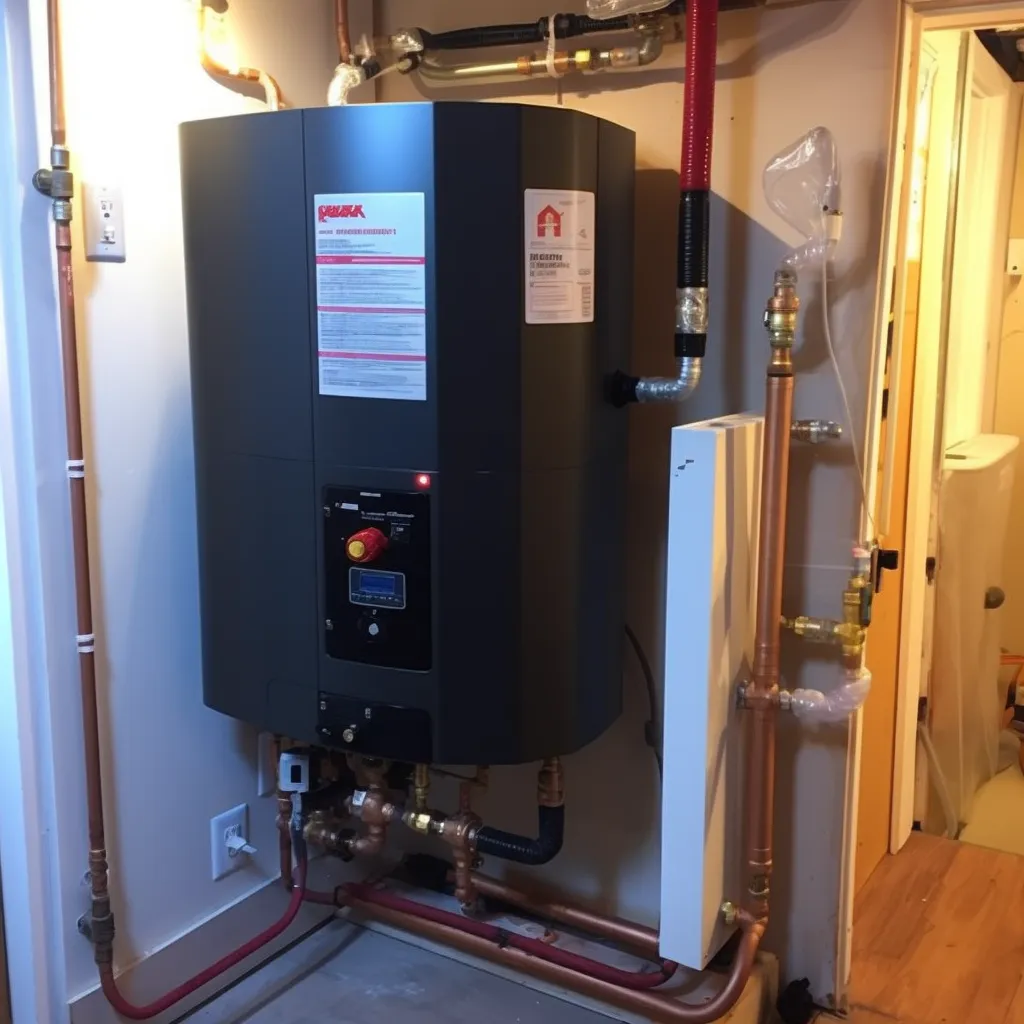
What does it cost to buy and install gas water heaters?
Gas water heaters are available in various sizes and have a price range of $500 to $1,500, with high-end models costing up to $3,000. Installation charges should also be taken into account, which can vary based on location and plumbing needs. While the initial cost might seem higher, gas water heaters offer long-term advantages and savings. They are more energy-efficient compared to other types, resulting in lower utility bills in the long run. Moreover, they provide a reliable and continuous supply of hot water, making them ideal for households that require a significant amount of hot water.
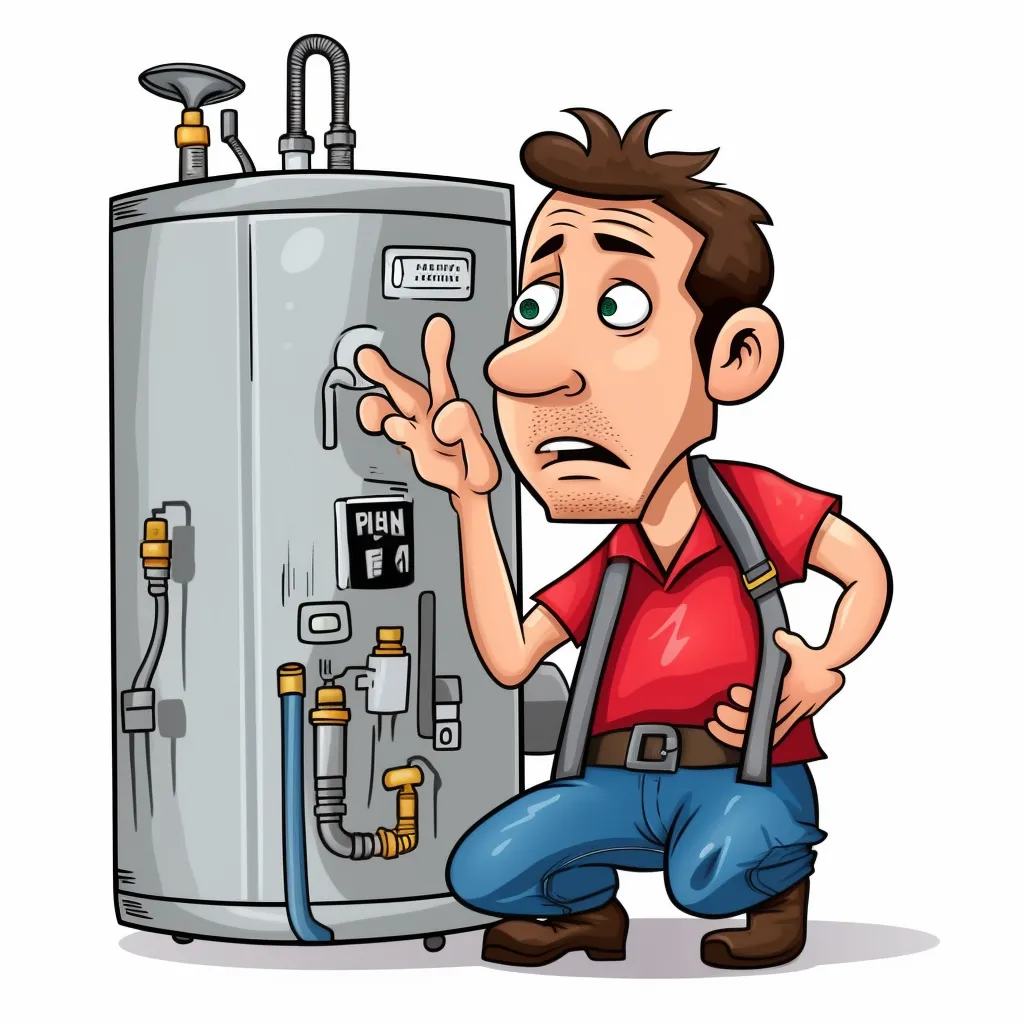
Maintenance needs of electric water heaters
Regular maintenance is vital for electric water heaters to keep them working properly and safely. You should make sure to check the temperature and pressure relief valve regularly to avoid overheating and potential explosions. Flushing the tank every six months to a year will help remove sediment and improve efficiency. It's also important to inspect the heating elements for any damage or mineral buildup and replace them if needed. Lastly, it's crucial to maintain secure and undamaged electrical connections for safe operation. If you're not sure about doing the maintenance yourself, it's best to hire a licensed professional.
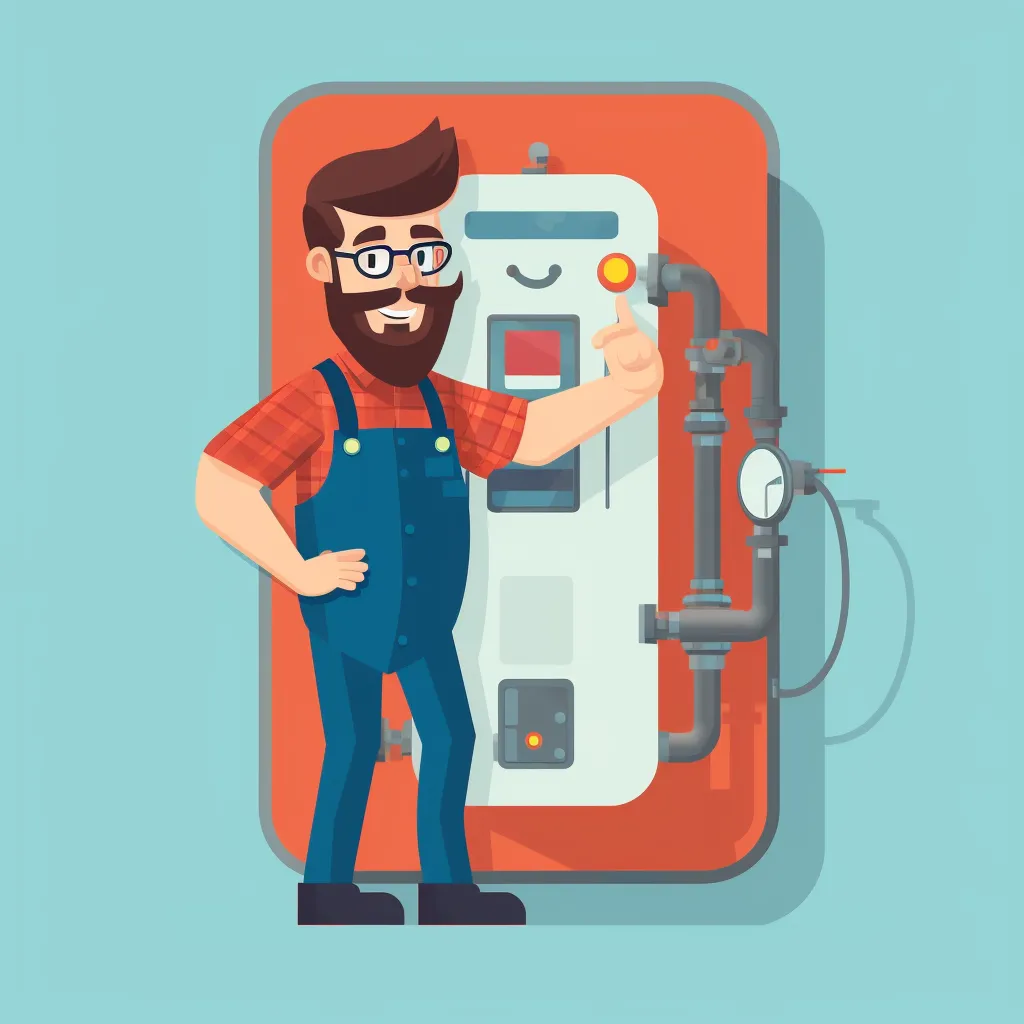
Maintenance needs of gas water heaters
Maintaining your gas water heater is crucial for safe and efficient performance. It's important to flush the tank every year, check the anode rod every few years, and inspect the burner and pilot assembly for any issues. Additionally, make sure to test the temperature and pressure relief valve every year and keep an eye out for gas leaks. If you have any questions or concerns, it's best to consult with a licensed professional. Stay proactive to ensure the optimal functioning and safety of your gas water heater.
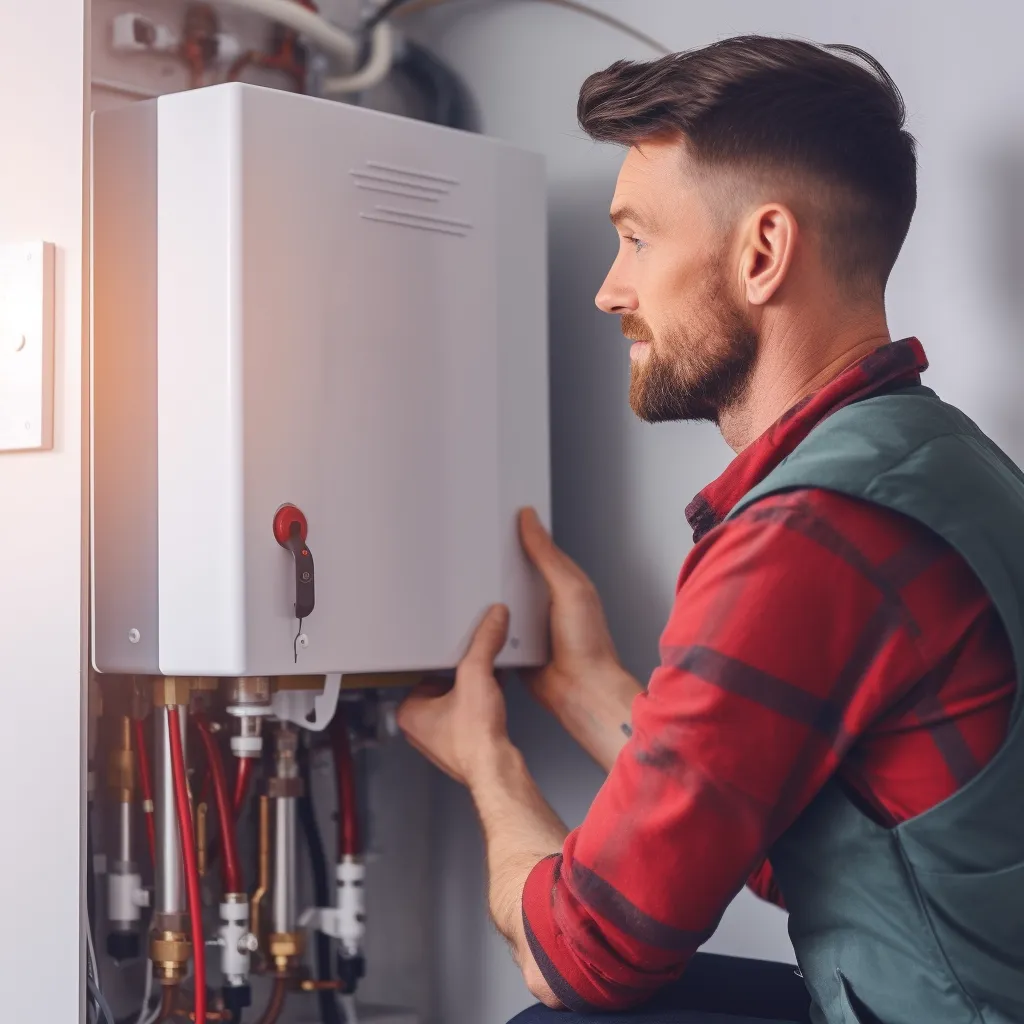
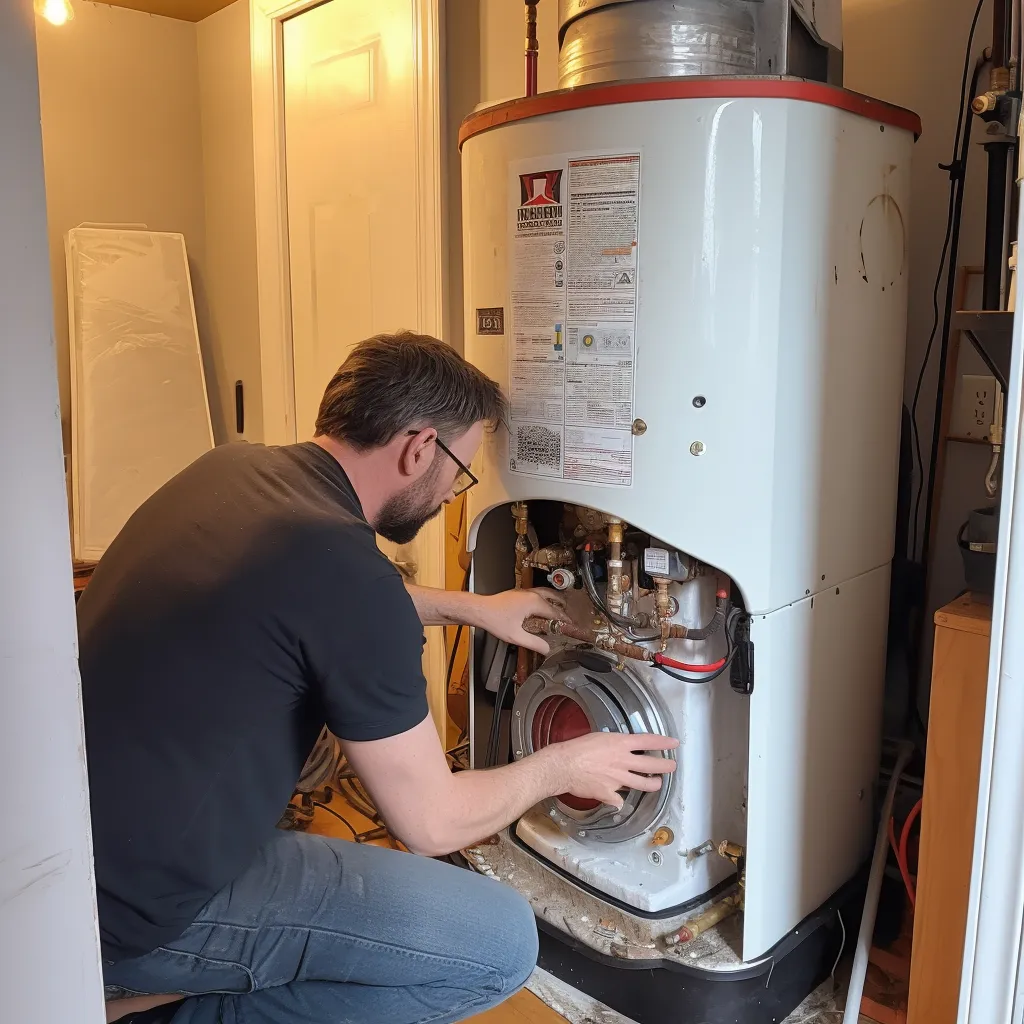
Safety considerations of electric water heaters
Using an electric water heater requires prioritizing safety to prevent potential dangers. One important concern is the risk of electrocution, which can happen if the heater is not grounded correctly or if it malfunctions. Fire hazards are also a potential issue if the water heater overheats or is positioned near flammable materials. To reduce these risks, it is strongly advised to carefully follow the manufacturer's instructions and have a licensed professional install the water heater. By taking these precautions, you can ensure that your electric water heater operates safely and reliably.
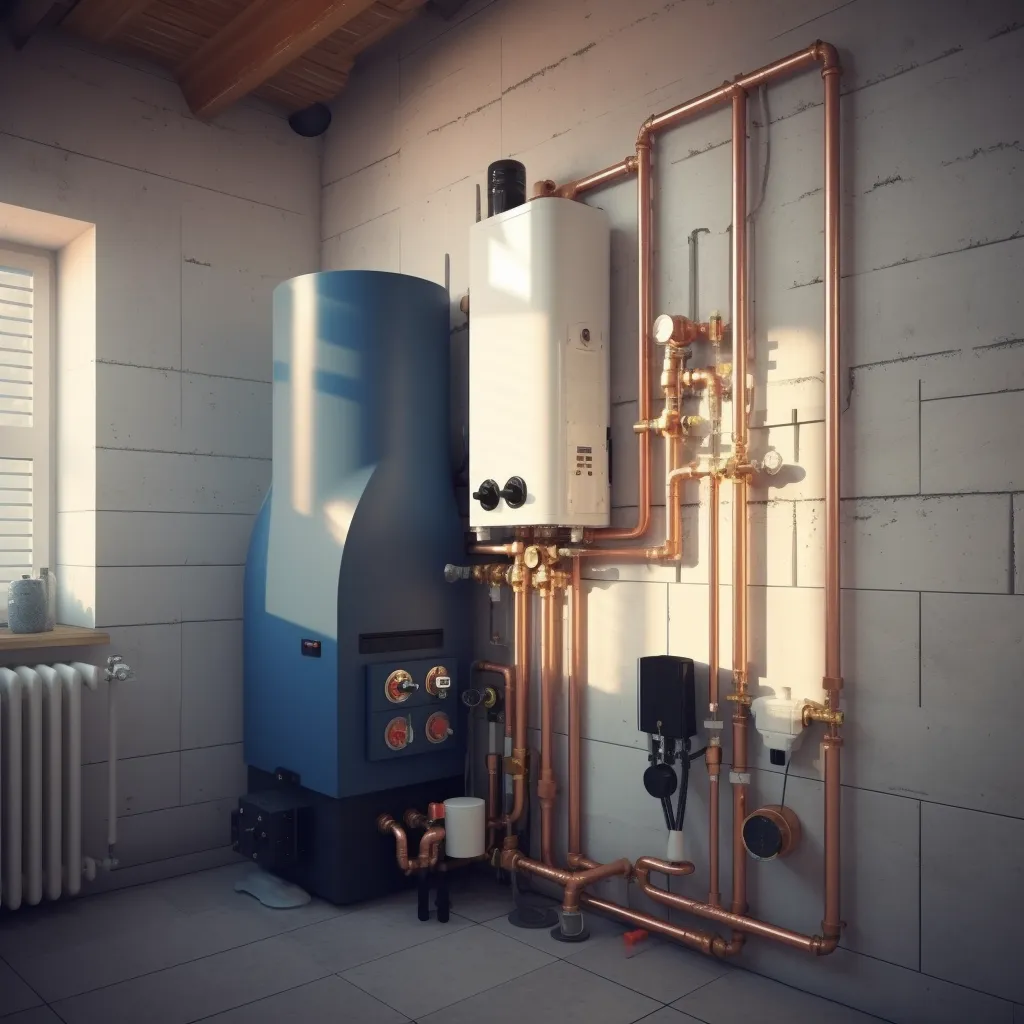
Safety considerations of gas water heaters
Safety is extremely important when using gas water heaters. It is highly recommended to install a carbon monoxide detector close by, regularly inspect and maintain the water heater, and keep the surrounding area free from any flammable objects. By following these precautions, you can have peace of mind and maintain a safe environment in your home.
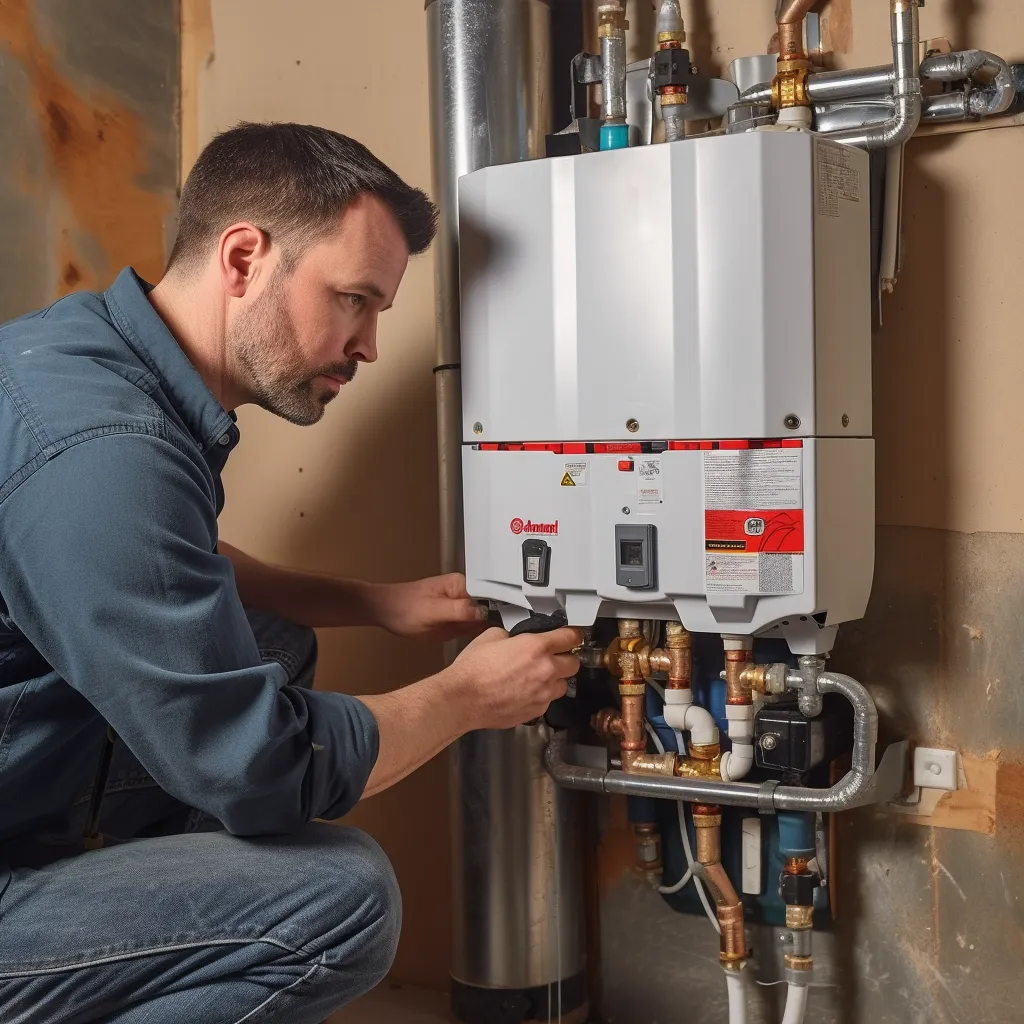
How to choose between electric vs gas water heater
By analyzing these factors, you can make an educated choice regarding the most appropriate water heater for your requirements.
When selecting a water heater for your home, it's important to consider the size of your household and how often hot water is used. This will help you determine the appropriate capacity for your water heater.
When it comes to cost, it's important to consider both the initial purchase and installation costs of electric and gas water heaters. Gas heaters tend to have higher upfront expenses, but they can offer long-term cost savings due to their energy efficiency.
Gas water heaters tend to be more efficient and economical to run than their electric counterparts.
Maintenance is an essential aspect of keeping your water heater in good working condition. Electric water heaters generally require less maintenance compared to gas heaters.
Electric water heaters are known for their lower environmental impact. They produce fewer pollutants compared to gas water heaters. Additionally, electric water heaters contribute to a lower overall carbon footprint, making them a more environmentally friendly choice for your home or business.
When selecting a water heater, it's important to consider your own preferences, lifestyle, and budget. Take into account things like energy efficiency, installation costs, maintenance needs, and the fuel sources available in your area. Also, think about your hot water requirements, potential long-term savings, and any environmental concerns you may have. By carefully considering these factors, you can choose a water heater that meets your needs and provides a consistent supply of hot water for your home.

Why you should hire a licensed professional to install your water heater
When it comes to installing or replacing a water heater, it's crucial to approach the task with caution. While some may think about saving money by doing it themselves, this can be risky and even dangerous. It's highly recommended to hire a licensed and experienced professional for the job. They have the necessary knowledge, skills, and expertise to ensure a safe and proper installation. By relying on a professional, you can have the peace of mind knowing that safety measures will be followed, and any potential issues will be addressed. Your safety should always come first, and hiring a licensed professional is the smart and responsible choice.
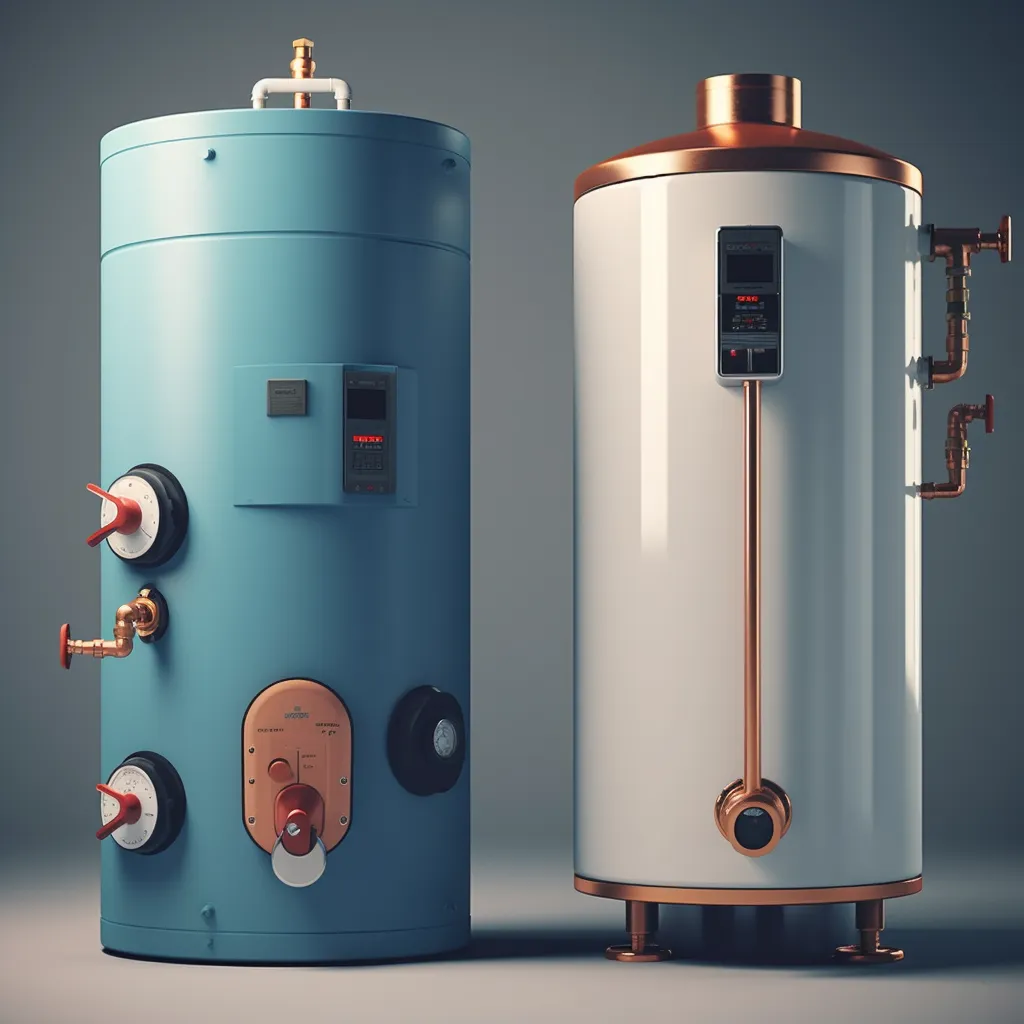
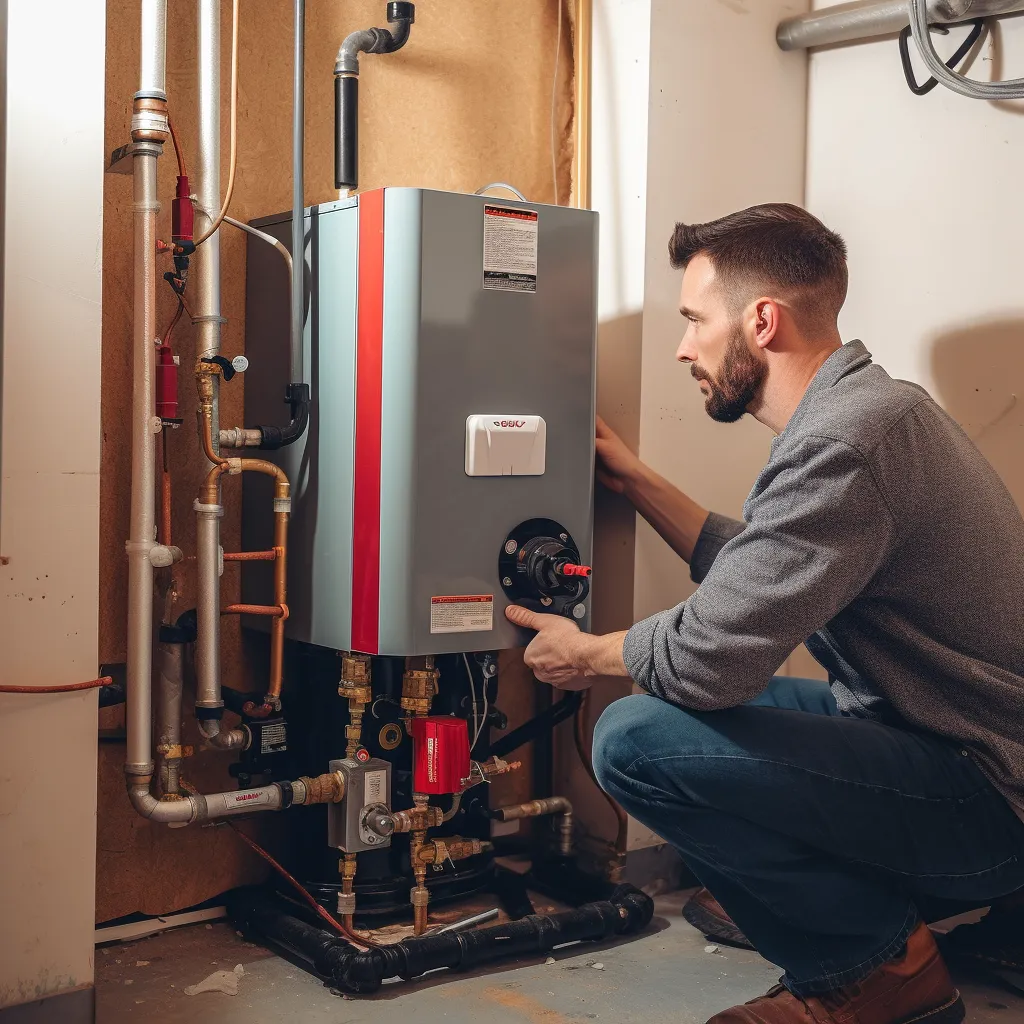
Be sure to do your research
When selecting a water heater, it's crucial to do your homework. You'll need to compare electric and gas models, weighing the advantages and disadvantages. Safety and installation requirements are also important factors to consider. By carefully considering all of these factors, you can find the perfect water heater for your specific needs. However, it's worth stressing how important it is to hire a licensed professional to handle the installation. Their expertise will ensure a safe and efficient operation for your water heater.
Contact Us
